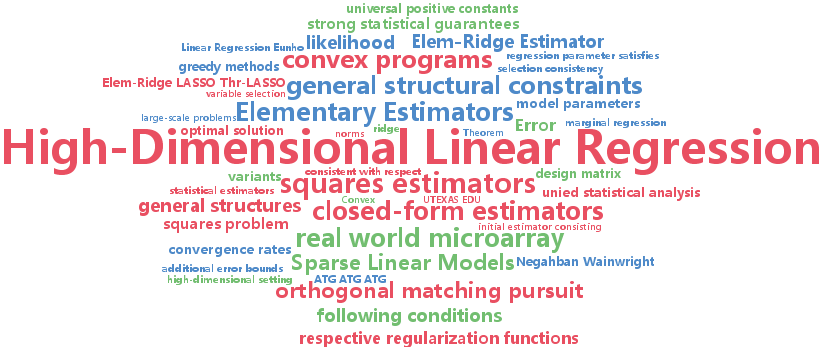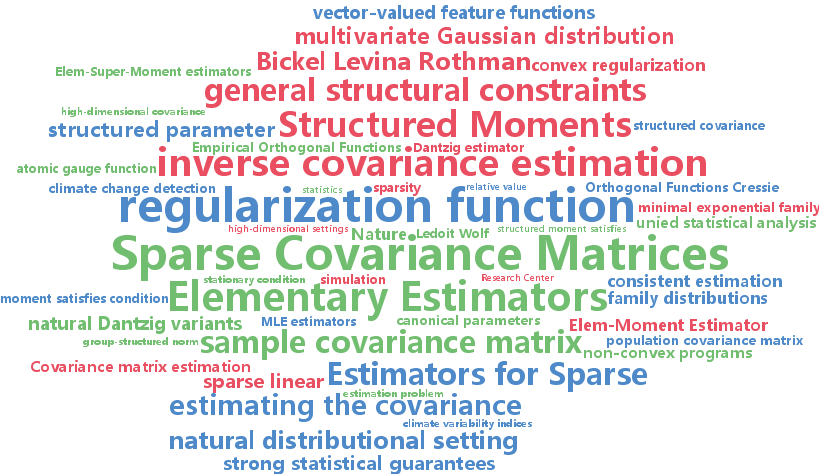general structural constraints
-
Eunho Yang and Aurelie Lozano and Pradeep Ravikumar
Elementary Estimators for High-Dimensional Linear Regression (pdf)
We consider the problem of structurally constrained high-dimensional linear regression. This has attracted considerable attention over the last decade, with state of the art statistical estimators based on solving regularized convex programs. While these typically non-smooth convex programs can be solved in polynomial time, scaling the state of the art optimization methods to very large-scale problems is an ongoing and rich area of research. In this paper, we attempt to address this scaling issue at the source, by asking whether one can build \emph{simpler
-
Suriya Gunasekar and Pradeep Ravikumar and Joydeep Ghosh
Exponential Family Matrix Completion under Structural Constraints (pdf)
We consider the matrix completion problem of recovering a structured matrix from noisy and partial measurements. Recent works have proposed tractable estimators with strong statistical guarantees for the case where the underlying matrix is low--rank, and the measurements consist of a subset, either of the exact individual entries, or of the entries perturbed by additive Gaussian noise, which is thus implicitly suited for thin--tailed continuous data. Arguably, common applications of matrix completion require estimators for (a) heterogeneous data--types, such as skewed--continuous, count, binary, etc., (b) for heterogeneous noise models (beyond Gaussian), which capture varied uncertainty in the measurements, and (c) heterogeneous structural constraints beyond low--rank, such as block--sparsity, or a superposition structure of low--rank plus elementwise sparseness, among others. In this paper, we provide a vastly unified framework for generalized matrix completion by considering a matrix completion setting wherein the matrix entries are sampled from any member of the rich family of \textit{exponential family distributions
-
Eunho Yang and Aurelie Lozano and Pradeep Ravikumar
Elementary Estimators for Sparse Covariance Matrices and other Structured Moments (pdf)
We consider the problem of estimating distributional parameters that are expected values of given feature functions. We are interested in recovery under high-dimensional regimes, where the number of variables $p$ is potentially larger than the number of samples $n$, and where we need to impose structural constraints upon the parameters. In a natural distributional setting for this problem, the feature functions comprise the sufficient statistics of an exponential family, so that the problem would entail estimating structured moments of exponential family distributions. A special case of the above involves estimating the covariance matrix of a random vector, and where the natural distributional setting would correspond to the multivariate Gaussian distribution. Unlike the inverse covariance estimation case, we show that the regularized MLEs for covariance estimation, as well as natural Dantzig variants, are \emph{non-convex


